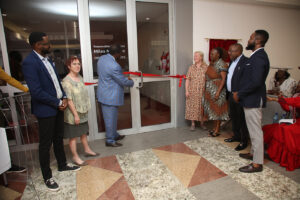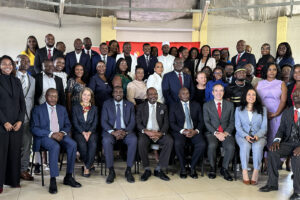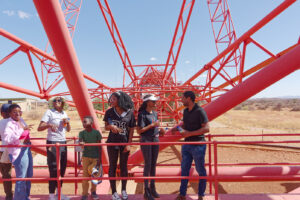Three fourth-year students, David Shooya, Magaret Simon, and Amoré Scholtz, from the Department of Biochemistry, Microbiology, and Biotechnology at the University of Namibia (UNAM), who are pursuing a Bachelor of Science in Microbiology (Honours), have been welcomed by the National Commission on Research, Science, and Technology (NCRST) to participate in a training programme focused on their academic research.
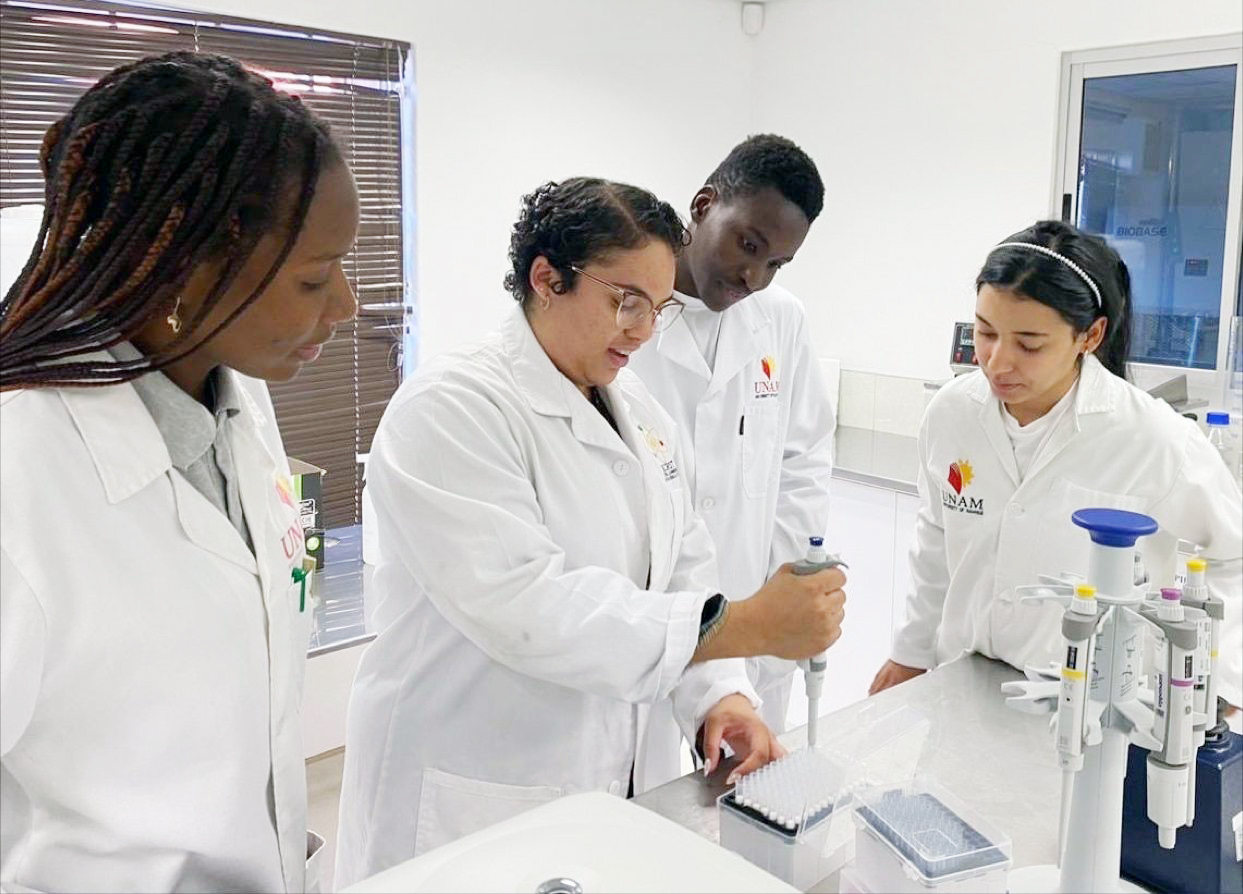
Their supervisor, Dr. Mwangala Nalisa, a researcher and lecturer in the Department of Biochemistry, Microbiology & Biotechnology at UNAM, organised this opportunity. “I am excited about the opportunity granted to my students. Being a UNAM alumna and having worked at the NCRST in the past, I believe that their experience in both institutions will provide a firm foundation for their careers,” stated Dr. Nalisa.
The training is set to conclude at the end of August. “So far, it has been a pleasant experience having the opportunity to train the students and supervise them,” expressed Wennyth Farmer, their mentor from the NCRST.
“It has been an enriching experience. It provided me with hands-on experience with advanced instruments and techniques, allowing me to apply my theoretical knowledge in a practical setting,” stated Amoré.
In this training programme, the students will utilise instruments provided by NCRST, such as the Quant Studio 5 PCR system, which is a device that rapidly and precisely analyses and amplifies DNA samples for research and testing purposes, at the National Genetically Modified Organisms (GMO) Testing Laboratory. In essence, it will help them determine the number of GMOs present in the samples as well as qualify the DNA in samples that may contain GMOs.
“My research is focused on analysing genetically modified seeds that are being imported into Namibia. Specifically, I’m looking for two genes, Bt-11 and MON 810, which are commonly found in these genetically modified seeds. The goal is to determine how prevalent these genes are in the seeds entering our market and what implications they might have for agriculture and the environment here in Namibia,” stated David.
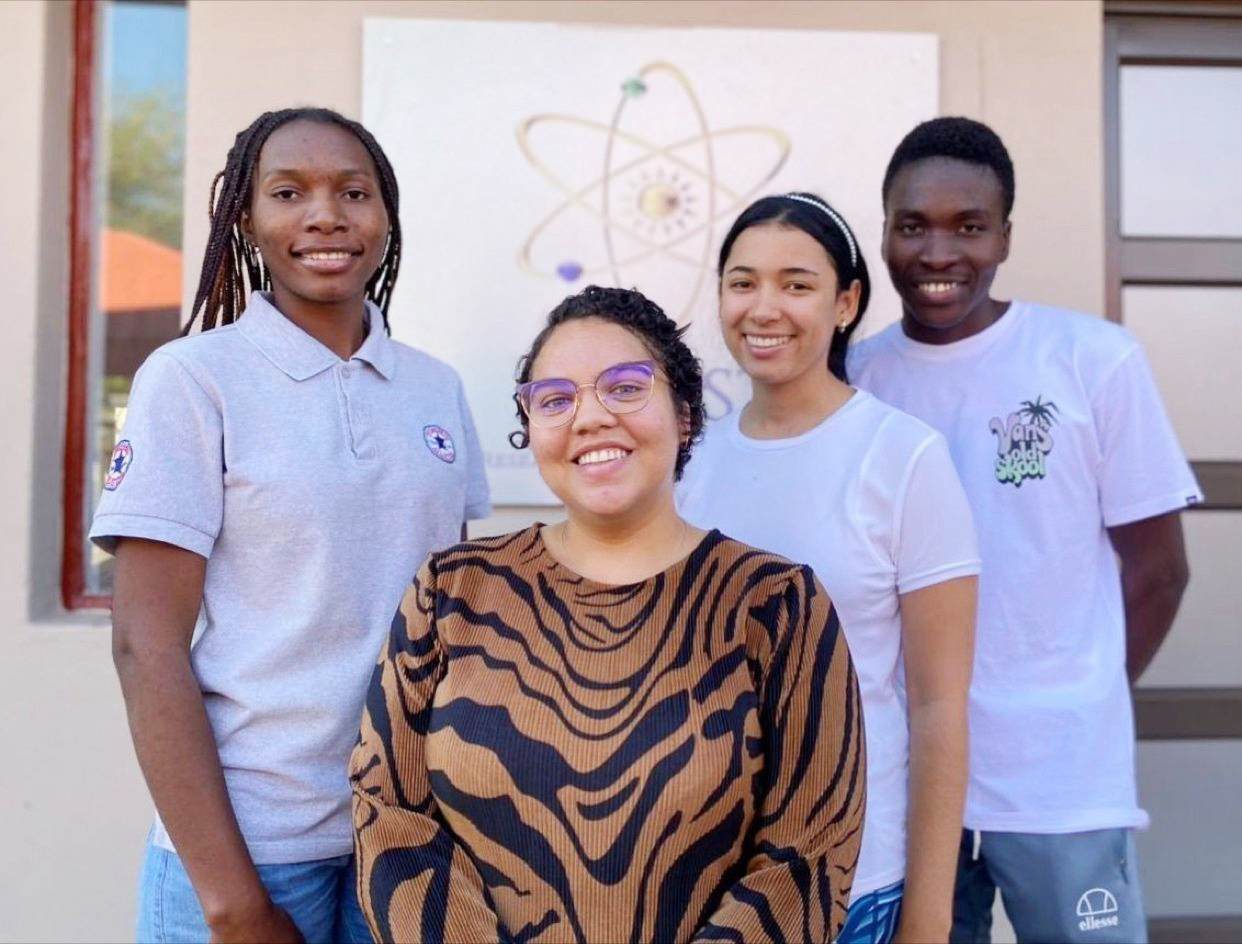
Their molecular work skills, such as working with DNA and isolation techniques for detecting GMOs in food and feed samples, are something that the main research activities are designed to improve.
Microbiology not just our field of study – but our passion now
Ultimately, the opportunity does not only serve to improve their technical skills but also nurture a deep passion for research, which is not just a stepping stone in their academic journey but a transformative experience that will shape their future as dedicated scientists, paving the way for a successful and fulfilling career in the field of microbiology.
“Initially, I was drawn towards medicine. However, my academic journey eventually led me to the captivating world of microbiology. As I explored deeper into the biological sciences, I found myself increasingly fascinated by the significant roles’ microorganisms play in our health, environment, and food supply. Today, I can confidently say that microbiology is not just my field of study but also my passion,” expressed Amoré.
“The mentorship provided by Dr. Nalisa and Wennyth Farmer has been instrumental in shaping my learning experience during the training. Their guidance, expertise, and support have not only deepened my understanding of the subject matter but also enhanced my research skills and critical thinking. Their mentorship has been invaluable in helping me navigate challenges and achieve milestones in my research, fostering a stimulating and enriching learning environment. Good supervisors can indeed take you to greater heights,” expressed Magaret.
“Thank you, Prof. Anicia Peters, the NCRST CEO, and the NCRST team; this is a great example of industry, government, and academia collaboration,” emphasized Dr. Nalisa.
Original story by Ms. Delight Namene. Delight is a Science Communication intern currently pursuing her 2nd year in a Bachelor of Science in Physics (Mathematics) (Honours).


